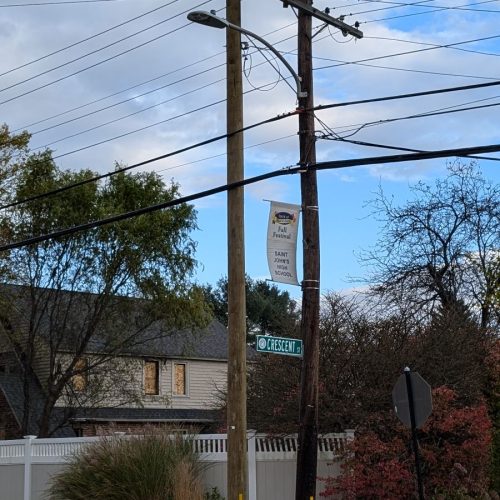Safety During a Power Outage
Protect Yourself & Your Home
Storms can occur anytime, and SELCO crews are available 24/7 to restore power quickly. To ensure safety and reduce inconvenience, follow the following recommended steps before, during, and after a storm. Be sure to sign up for Customer Power Outage Notification through your SmartHub account.
Before the Storm
- Place flashlights throughout your home, and inform household members where they are.
- Have extra batteries on hand.
- Have a battery-operated radio to stay informed.
- Keep extra water and non-perishable food items (Canned goods, dried foods) in case of long-term outages.
- If your life depends on electricity for the operation of medical equipment, call 508-841-8500 to speak to our team and to make sure your account has been noted in our system.
During the Storm
- If your power does go out, first check to see if your neighbors have power or if you have power in other parts of your home. (You may have simply blown a fuse or tripped a circuit breaker.)
- If your home or neighborhood is without power, call 508-841-8500 to report the outage.
- Turn off any appliances that were on before the outage; unplug sensitive appliances.
- Leave a light switch on to alert you when the power is back on.
- Never burn charcoal indoors or use a gas range for heating. Both give off toxic fumes.
- If your house may be without heat for an extended period and the outside temperature is below freezing, drain your water pipes.
- Never touch any fallen lines or anything touching fallen wires. Report all fallen wires to SELCO at 508-841-8500
After the Storm
- If service has been restored to your neighborhood and your home is still without power, call our main number at 508-841-8500
- Before re-entering storm-damaged buildings or rooms, be sure all electric and gas services are turned off. Never attempt to turn off power at the breaker box if you must stand in water to do so. If you can’t reach your breaker box safely, call SELCO to turn off power at the meter.
- Do not use water-damaged electric items until a qualified electrician has inspected them and ensured they are safe.
- Gradually reconnect your appliances to avoid overloading circuits when power is restored.
DOWNED WIRES
Downed lines can kill. If you see a downed electric line, always assume it’s energized and deadly.
DO:
- Keep any pets and children away from fallen electric lines.
- Always keep as far away as possible, at least 35 feet away from any downed line. The ground around a fallen power line may be energized and deadly.
- Stay where you are, unless you see fire or smoke.
DO NOT:
- Don’t touch the downed line with your hand or any object – including sticks, brooms, or poles.
- Don’t touch anything in contact with the power line, including cars, equipment, objects, or other people.
- Don’t drive over a power line.
- Don’t try to rescue someone touching a downed line – you could be at risk if you do.
GENERATOR SAFETY
If you are operating a generator, follow all safety guidelines. To protect yourself, your neighbors, and our line personnel, please follow these precautions when using a backup generator.
DO:
- Before using your generator, read, understand, and follow the manufacturer’s instructions.
DO NOT:
- Never install a generator in a basement, attached garage, or enclosed area. The generator’s exhaust gases contain carbon monoxide, an invisible, odorless, poisonous gas.
- Do not operate a generator near a natural gas or propane appliance; their pilot flames could ignite gasoline fumes.
- Do not store gasoline near an operating generator, as it could also ignite gasoline fumes.
For more Power Outage Safety Tips, visit https://www.mass.gov/info-details/power-outage-safety-tips
Helpful Documents:


